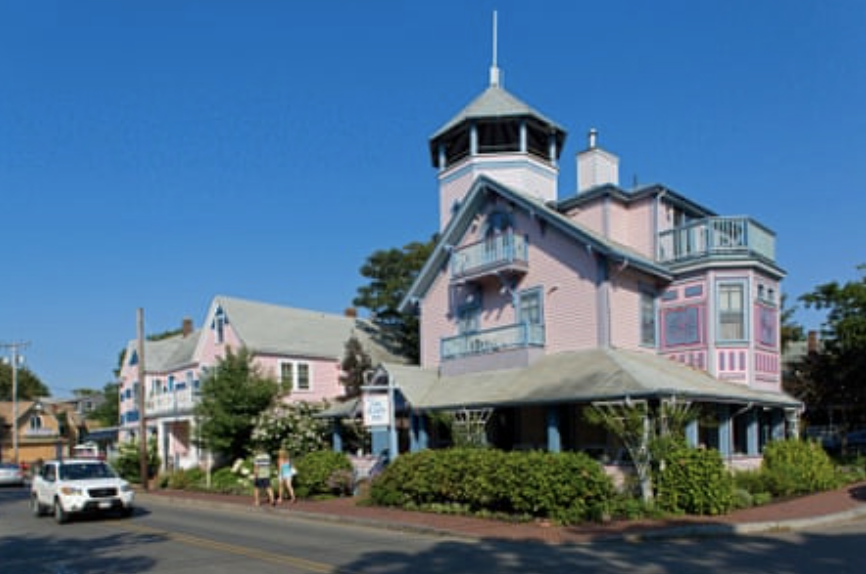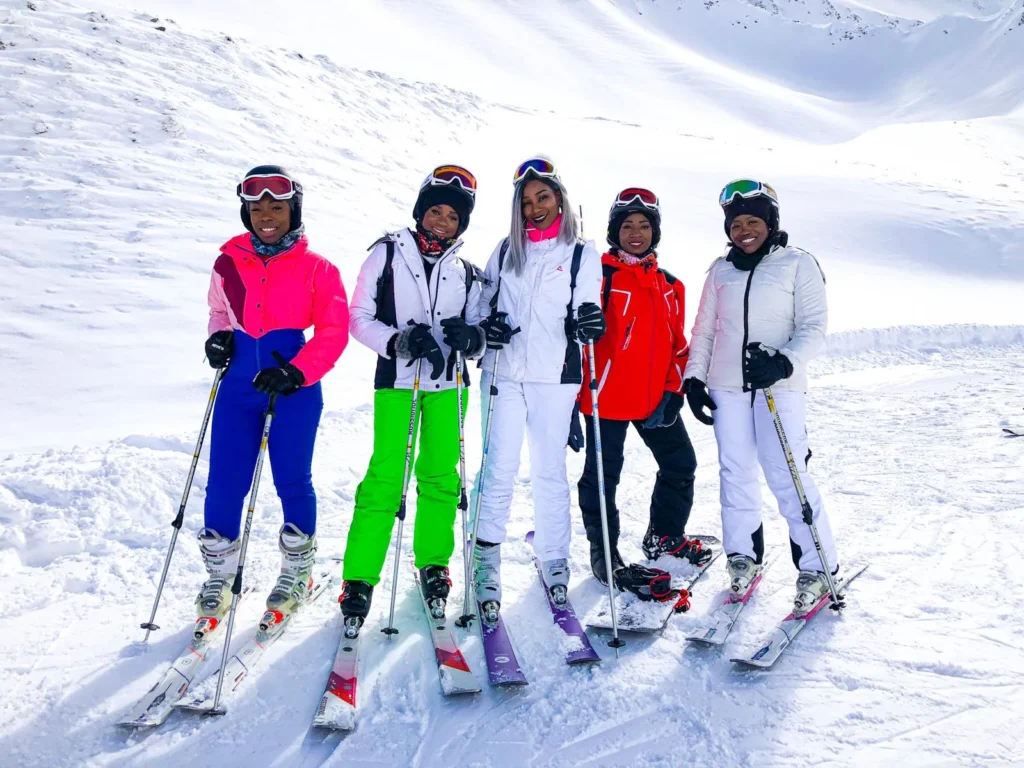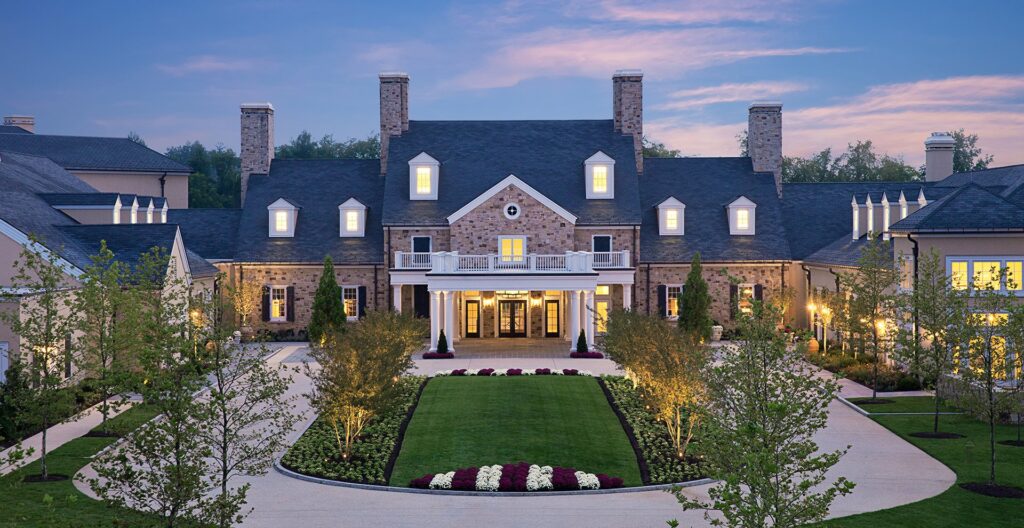TRAVEL & TOURISM
– Enjoy the beauty of Africa, Caribbean and other exotic Black destinations.
Here Are Black-owned Hotels For Your Next Trip: From Ski Lodges to Luxury Resorts

Oak Bluffs Inn Oak Bluffs Inn. Photograph: Hemis/Alamy
Black travelers make up a robust segment of the US tourism economy. According to a 2019 study conducted by market research firm MMGY Global, Black Americans spent $109.4bn on domestic travel in 2019 – plus nearly $20bn more on travel abroad. That is over 13% of the overall US leisure travel market, roughly the same percentage of Black people in the US. “What’s often perceived to be a ‘niche’ audience actually accounts for over 458m traveler stays each year,” says Chris Davidson, executive vice president of MMGY.
These healthy numbers do not square with the travel industry’s entrenched problem of Black equity. While a number of hotels were founded by Black people in the half century following Emancipation – from the Wormley Hotel in Washington DC and the recently shuttered Eureka Inn in Jonesborough, Tennessee to the Julian Gold Rush Hotel, which still operating in the former mining town of Julian, California, the Black stake in the US travel economy is far from flourishing.
According to the National Association of Black Hotel Owners, Operators and Developers, a mere 2% of US hotels are under Black ownership. Which means that travel dollars – no matter their source – rarely wind up in Black hands.
A crop of travel companies are making it somewhat easier to buy Black while on the go. From a Virginia getaway dreamed up by a woman who happens to have been one of the most important Black CEOs to a winter sports startup that caters to skiers of color, here are three Black businesses breathing new life – and a sense of fairness – into the market.

Predominantly African-American resort destinations have existed across the US for ages, from Sag Harbor in New York’s fabled Hamptons to Michigan’s Idlewild, which was known as the south-east lake country’s “Black Eden”, but no community is as renowned as the town of Oak Bluffs on the island of Martha’s Vineyard. For more than a century, this tiny enclave has been home to a resort community where Blackness is the standard – not the exception. “It’s the best-known resort among the Black elite,” wrote author and historian Lawrence Otis Graham in his 1999 bestseller Our Kind of People: Inside America’s Black Upper Class.
At the center of Oak Bluffs is the 10-room Oak Bluffs Inn, a short stroll from Inkwell Beach, where Black families have bathed for generations. Co-owners Erik and Rhonda Albert purchased and relaunched the inn in the late 1990s and since then have cultivated a strong African American clientele. “80 to 100% of the time, at least one person in each room is Black,” says Erik Albert, who describes Oak Bluffs as “spendy but not ritzy”. White travelers have occasionally turned up in Oak Bluffs (both the town and inn) surprised, if not shocked, to find themselves among the minority, he says. “It rarely happens, but some have even checked out early.” The penthouse reaches $1,600 per night during the peak-season months of July and August. But the money is there, especially Black money, the innkeeper says. “There has been a new wave of investment in Oak Bluffs. And people just want to be a part of it.”

A Mount Noire ski trip. Photograph: Courtesy of Mount Noire.
“There’s always been this narrative that Black people don’t ski, Black people don’t do luxury travel,” says Wenona Barnieh, co-founder of the Black-focused winter sports tour operator Mount Noire. Established in 2019, the UK-based boutique agency was born from its founders’ own experience of being, as Barnieh describes, “the only Black girl on the slopes”. Mount Noire organizes ski and snowboarding experiences in major winter sports destinations in France, Italy and eastern Europe. Barnieh, who spends her off-piste time working as an internal medicine doctor in London, says the majority of Mount Noire clients are much like herself: Brits and Americans hovering around the age of 30 who probably didn’t grow up on the slopes (Barnieh took up skiing at college) – and are looking to mix a dose of community building with good old-fashioned fun. “We are trying to build a network,” she says, “there’s a lot of potential impact from Black people traveling as a group.”
So far, Barnieh says that Mount Noire has mostly experienced warm welcomes from the ski resorts and hotels with whom her firm partners. “It makes them look good if they can show that they embrace diversity,” she says. One chalet company, however, “was worried we would be noisy”, Barnieh says. She adds that Noire’s Instagram account has occasionally received racist comments. Upcoming trips are planned for Bulgaria, Italy and France.

Salamander Resort and Spa. Photograph: Courtesy of Salamander Resort & Spa.
Virginia’s Middleburg “hunt country” got a big dose of added glamor with the opening of the Salamander Resort and Spa back in 2013. Set in the foothills of Blue Ridge Mountains, the 168-room property has an owner in Sheila Johnson, the co-founder of Black Entertainment Television. Since then, Johnson – America’s first Black female billionaire – has expanded Salamander’s footprint to include seven ultra-luxe properties across the US and Caribbean, including its newest, the Salamander Washington DC, formerly the five-star Mandarin Oriental.
A trained violinist who decorated the original Virginia resort with her personal trove of antiques, Johnson has said that developing a luxury resort in the south as a woman and African American “didn’t sit well with a lot of people”. Today, though, she sits at the helm of the largest Black-owned luxury group in the US.
Newsletter
Subscribe to our bi-weekly newsletter and be the first to Receive New Updates.
Your comments, ideas, and thoughts matter.
Drop us a line: